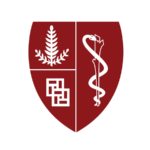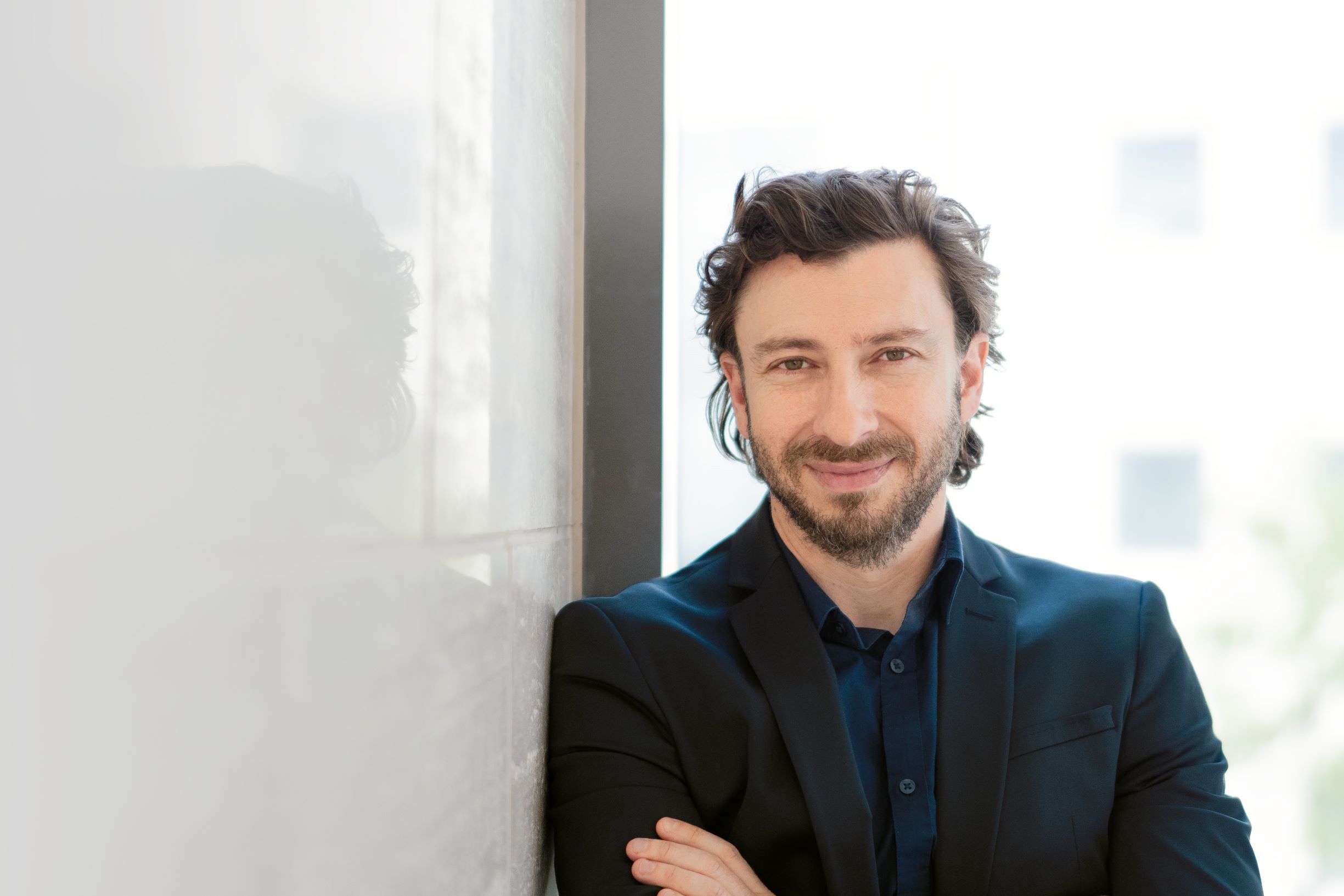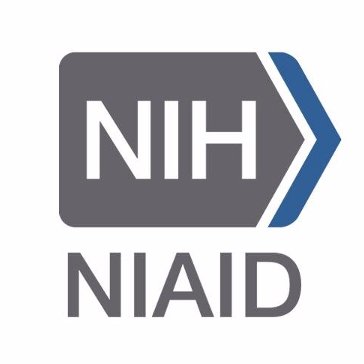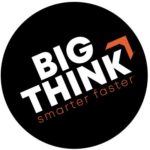FURMAN LAB
Lab focus
The role of the immune system in the protection against infections has been recognized for over a hundred years. However, only recently it has become apparent that inflammatory components of the immune system are often elevated in aged individuals and associated with high incidence of non-communicable diseases such as cancer, cardiovascular disease and neurodegenerative disorders, among others.
The Furman lab integrates systems-level immunity in humans to accelerate knowledge of how the immune system affects aging and related chronic disease. Central for this research is the use of state-of-the art technological platforms to measure multiple levels of the immune system in large human cohorts and the application of advanced analytics by artificial intelligence and machine learning to cope with these large volumes of data (‘Big Data’). We collaborate closely with multiple Buck faculty to help defining the immune pathways and circuitries affected by aging and linked to chronic disease states.
Why it matters
Non-communicable diseases of aging are the #1 killer worldwide with a yearly estimated burden of $2.3 trillion only in the US (90% of the total annual health expenditures). It is now a consensus that Systemic Chronic Inflammation (SCI), arising as an immune response to environmental and social insults (known as the ‘exposome’), is the root cause of these diseases, which include cardiovascular disease, cancer, neurodegenerative disorders, musculoskeletal conditions, and many others. Identifying metrics and understanding the role of SCI on the pathophysiology of these age-related diseases is now transforming healthcare as it enables people take control of their health and accelerates discovery of therapeutics, which will result in a significant reduction of disease burden.
Applied Artificial Intelligence is helping us to unravel the complex interactions between environment, immunity & aging and it is transforming preventative medicine and therapeutics.
David Furman, PhD
CENTER DETAILS
Dr. David Furman is Director of the Stanford 1,000 Immunomes Project at Stanford School of Medicine, Associate Professor at the Buck Institute for Research on Aging and Chief of the AI Platform at the same institute. He obtained his Doctoral degree in immunology (summa cum laude) from the School of Medicine, University of Buenos Aires, Argentina, for his work on cancer immune-surveillance. During his Postdoctoral training at the laboratory of Professor Mark M Davis (Stanford), he conducted cutting-edge research in Data Science and Systems Immunology to predict clinical outcomes using multi-omics technologies in large human cohorts. The aim was to answer scientific questions with strong potential for translational medicine, including the effect of immunity in age-related disease and longevity. Dr. Furman moved to University of Bordeaux, France, where he was appointed as Visiting Scientist and investigated the involvement of the endocrine and immune systems in human aging and in kidney transplantation. After France, Dr. Furman helped create the Systems Biology Department at the Sidra Medical Research Center in Doha, Qatar. Dr. Furman was then re-appointed at the Stanford School of Medicine to assume the role of Consulting Professor at the Institute for Immunity, Transplantation and Infection (ITI), and his work involved the use of high-bandwidth/high throughput technologies to measure immune function in humans and Machine Learning tools to better define the role of the immune system in disease and longevity.
Dr. Furman is inventor of over 20 patents and has published dozens of scientific articles with over 6,000 citations in top peer reviewed journals such as The Lancet, Nature Medicine, Cell, etc. Current i10 index of Dr. Furman is 32.
-
 Alexander Chebykin Dominican University Graduate Student
Alexander Chebykin Dominican University Graduate StudentAlex received his B.S. in clinical laboratory sciences from University of Minnesota. After a career in medical diagnostics, he joined both Furman and Winer labs in January 2023 as a Master’s student from the Dominican University of California to pursue his interests in the biology of aging research. In his spare time, Alex enjoys physical exercise, boxing, hiking, and reading.
AChebykin@buckinstitute.org
-
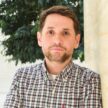 Matias Fuentealba, PhD Postdoctoral Researcher
Matias Fuentealba, PhD Postdoctoral ResearcherMatias is a computational biologist and Doctor in Aging from University College London (UCL). In his doctoral thesis at UCL, he worked with Professor Linda Partridge on the prediction of novel genetic and pharmacological interventions to modulate aging and improve healthy lifespan. He developed several computational methods for this purpose which were strongly validated by experiments and the existing literature. Matias has demonstrated to be very prolific, in addition to being highly motivated and independent, leading several initiatives and collaborations during his career. In April 2022, he joined the Furman Lab with the goal to study the parallels between space flight and terrestrial aging and bring to light novel compounds with the potential to delay age-related pathologies.
MFuentealba@buckinstitute.org
-
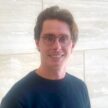 Scott Ginebaugh Bioinformatics Scientist
Scott Ginebaugh Bioinformatics ScientistScott Ginebaugh completed his B.S. in mathematics at Wayne State University, and then received his Ph.D. in integrative systems biology from the University of Pittsburgh, where he focused on optical measurements and computational modeling of neuromuscular disease. After graduating from Pitt, he did his postdoc at Dana-Farber, Harvard, and the Broad Institute, where he focused on single-cell analysis of the tumor microenvironment in pancreatic cancer. After leaving his postdoc, he and David Furman co-founded Cosmica Biosciences – a startup focusing on utilizing simulated-microgravity-induced accelerated aging for personalized health. His current research at the Buck is focused on single-cell analysis of neural aging and neural organoid models.
SGinebaugh@buckinstitute.org
-
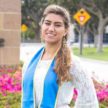 Heather Halaweh Administrative Lab Manager
Heather Halaweh Administrative Lab ManagerHeather received her biological sciences degree and spanish minor from UC Santa Barbara. Caring for patients as a chairside dental assistant inspired Heather to pursue a career in the field of research. After leaving dentistry, completing a Business Certificate in Entrepreneurship from Santa Rosa Junior College, and gaining professional lab experience, she joined the Furman Lab as an Administrative Lab Manager. Heather grew up in Sonoma County and enjoys gardening, dancing, and playing the piano.
HHalaweh@buckinstitute.org
-
 Max Manwaring-Mueller Postbaccalaureate Researcher
Max Manwaring-Mueller Postbaccalaureate ResearcherMax is a Molecular, Cellular and Developmental biologist from UC Santa Cruz (UCSC). During his undergraduate years, he worked in the Hinck lab to investigate triple negative breast cancers and potential therapeutic targets of the PI3K/Akt pathway. In August 2023, Max started as a post baccalaureate research assistant in both the Winer and Furman labs. Here, he works in the wet and dry labs to study mechanoimmunology and simulated microgravity's effects on the immune system and to transform raw lab data into compelling analytics and insights.
mmanwaring-mueller@buckinstitute.org
-
 Nikola Markov, PhD Bioinformatics Scientist
Nikola Markov, PhD Bioinformatics ScientistNikola Markov is a postdoctoral fellow who joined the Furman lab in Sept 2020. He received his Ph.D in Neuroscience for his studies of the structural organization of the Macaque cortical network. He holds a B.S in Cell Biology and Physiology from the University Claude Bernard in Lyon France. He moved to the US in 2011 to join the labs of Michael Higley and Xiao Jing Wang where he applied optogenetic methods to study the synaptic properties of a novel fronto-occipital projections playing role in establishing visual attention. He later joined the lab of Timothy Bushman where he built new experimental systems for primate and rodent behavior control and developed high density multi-electrode devices to record neural activity in animals performing a gating of working memory task. After a short stint at Stanford university he has joined the Buck institute to expand his understanding of the role of chronic inflammation in the processes of aging especially as it relates to the neural system.
NMarkov@buckinstitute.org
-
 Wei-Chieh Mu, PhD Postdoctoral Bioinformatics Researcher
Wei-Chieh Mu, PhD Postdoctoral Bioinformatics ResearcherWei-Chieh holds both a B.S. and an M.S. degree from the Department of Biochemical Science and Technology at the National Taiwan University. Building upon her foundation, she pursued an M.S. degree in Nutrition Science at Purdue University, where she investigated the impact of dietary protein on metabolism and inflammation in aging mice. Driven by her passion for understanding the intricate mechanisms of cellular aging, Wei-Chieh embarked on a Ph.D. journey in Dr. Danica Chen's laboratory at UC Berkeley. Her research centered on using mouse models to unravel the molecular intricacies of cellular aging. Throughout her doctoral studies, Wei-Chieh developed a profound interest in data science and bioinformatics. Her adept analysis of cutting-edge single-cell genomic data resulted in the identification of promising therapeutic targets for brain aging and fatty liver disease. In June 2023, she joined the Furman lab as a postdoctoral fellow.
wmu@buckinstitute.org
-
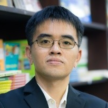 Khiem Nguyen Data Scientist
Khiem Nguyen Data ScientistKhiem completed his Ph.D degree in chemical biology at the University of Utah in 2012. From 2013 to 2015, he worked as a Postdoc Scholar at the University of California Berkeley and University of Utah. He developed his interest in bioinformatics during his employment at the company Bimedtech from 2016-2018. He then pursued a M.Sc degree in Applied Statistics with a focus in Biostatistics at Pennsylvania State University in 2018 to build a more quantitative background. From 2018 to 2019, he visited the University of California at San Francisco, where he studied brain gene expression heritability from genetic - environment interactions. His current research focuses on analyzing multi-scale biological data to understand the mechanism of aging and aging-related diseases.
KNguyen@buckinstitute.org
-
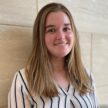 Fiona Senchyna Bioinformatics Researcher
Fiona Senchyna Bioinformatics ResearcherFiona received her BS in biological and biomedical science at Maynooth University, Ireland. She moved to the Bay Area in 2016 and began working in a clinical microbiology lab. There, she was introduced to bioinformatics and helped develop a cell free molecular assay for the detection of invasive fungal infections. Her interest in the intersection of biology and computer science led her to pursue a MS in the latter at San Francisco State University, which she graduated from in 2023.
FSenchyna@buckinstitute.org
-
 Kevin Schneider Bioinformatics Researcher
Kevin Schneider Bioinformatics ResearcherKevin completed his B.S. in computer science and B.S. in bioinformatics at the University of California, Santa Cruz in 2005, where he researched Archaea and implemented a genome browser based off the UCSC Human Genome Browser. He completed his Ph.D. in molecular biosciences and bioengineering at the University of Hawaii at Manoa in 2012. His research, at the interface of the wet and dry lab, focused on bacterial genome evolution; he computationally derived a DNA marker to resolve bacterial phylogenies and analyzed the evolution of an anciently acquired plant-like gene in a large culture collection. He continued at the University of Hawaii at Manoa as a postdoctoral researcher until 2018. He researched centromere evolution, providing an alternative explanation of the centromere paradox, and completely assembled five of the centromeres of maize. His interests in human health and nutrition led him to several small startup companies in the San Francisco Bay Area. At Sound Agriculture he implemented machine learning algorithms to identify small molecules, increasing plant growth and health, and developed novel epigenetic tools to accelerate trait development. As a data scientist at Edifice Health, a Stanford University spinoff, he led the clinical research team and piqued his curiosity on aging, inflammation and the immune system. He joined the Furman lab in 2023 to help with the mission of the Buck Institute and expand his knowledge and understanding of systemic inflammation and the aging process.
KSchneider@buckinstitute.org
-
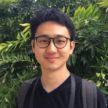 Fei Wu, PhD Postdoctoral Researcher
Fei Wu, PhD Postdoctoral ResearcherFei completed his Ph.D. degree in interdisciplinary aging studies at Tulane University in 2021. He holds an M.Sc in medical sciences from Institute for Ageing, Newcastle University, and was a scientist in QIAGEN(Suzhou). His research focused on host-pathogen interaction in senescent cells. He hopes his work leads to a better understanding of the aging process and contributes to extending the healthy life span of human beings.
FWu@buckinstitute.org
Selected Publications
-
Juliet M. Bartleson, Dina Radenkovic, Anthony J. Covarrubias, David Furman, Daniel A. Winer & Eric Verdin, SARS-CoV-2, COVID-19 and the aging immune system, Nature Aging, 2021Sep;1(9):769-782.
-
Nazish Sayed, Yingxiang Huang, Khiem Nguyen, Zuzana Krejciova-Rajaniemi, Anissa P. Grawe, Tianxiang Gao, Robert Tibshirani, Trevor Hastie, Ayelet Alpert, Lu Cui, Tatiana Kuznetsova, Yael Rosenberg-Hasson, Rita Ostan, Daniela Monti, Benoit Lehallier, Shai S. Shen-Orr, Holden T. Maecker, Cornelia L. Dekker, Tony Wyss-Coray, Claudio Franceschi, Vladimir Jojic, François Haddad, José G. Montoya, Joseph C. Wu, Mark M. Davis & David Furman. An inflammatory aging clock (iAge) based on deep learning tracks multimorbidity, immunosenescence, frailty and cardiovascular aging. Nature Aging volume 1, pages 598–615 (2021).
-
Cesar J. Lopez Angel, Edward A. Pham, Huixun Du, Francesco Vallania, Benjamin J. Fram, Kevin Perez, Thai Nguyen, Yael Rosenberg-Hasson, Aijaz Ahmed, Cornelia L. Dekker, Philip M. Grant, Purvesh Khatri, Holden T. Maecker, Jeffrey S. Glenn, Mark M. Davis, and David Furman. Signatures of immune dysfunction in HIV and HCV infection share features with chronic inflammation in aging and persist after viral reduction or elimination. Proc Natl Acad Sci. 2021 Apr 6;118(14):e2022928118.
- Furman D, Campisi J, Verdin E, Carrera-Bastos P, Targ S, Franceschi C, Ferrucci L, Gilroy DW, Fasano A, Miller GW, Miller AH, Mantovani A, Weyand CM, Barzilai N, Goronzy JJ, Rando T, Effros RB, Lucia A, Kleinstreuer N, Slavich GM. Chronic Inflammation in the Etiology of Disease Across the Lifespan. Nature Medicine volume 25, pages 1822–1832 (2019).
- Alpert A, Pickman Y, Leipold M, Rosenberg-Hasson Y, Ji X, Gaujoux R, Rabani H, Starosvetsky E, Kveler K, Schaffert S, Furman D, Caspi O, Rosenschein U, Khatri P, Dekker CL, Maecker HT, Davis MM, Shen-Orr SS. A clinically meaningful metric of immune age derived from high-dimensional longitudinal monitoring. Nature Medicine volume 25, pages 487–495 (2019).
- Davis MM, Tato CM, Furman D. Systems Immunology: Just Getting Started. Nature Immunology 2017 Jun 20;18 (7):725-732.
- Blazkova J, Gupta S, Lui Y, Gaudilliere B, Ganio EA, Bolen CR, Saar Dover R, Fragiadakis GK, Angst MS, Hasni S, Aghaeepour N, Stevenson D, Baldwin N, Anguiano E, Chaussabel D, Altman MC, Kaplan M, Davis MM, Furman D. Multicenter systems analysis of human blood reveals immature neutrophils in males and during pregnancy. Journal of Immunology 2017;198(6):2479-2488.
- Furman D, Chang J, Lartigue L, Bolen CR, Haddad F, Gaudilliere B, Ganio EA, Fragiadakis GK, Spitzer MH, Douchet I, Daburon S, Moreau JF, Nolan GP, Blanco P, Dechanet-Merville J, Dekker CL, Jojic V, Kuo CJ, Davis MM, Faustin B. Expression of specific inflammasome gene modules stratifies older individuals into two extreme clinical and immunological states. Nature Medicine 2017;23(2):174-184.
- Shen-Orr S*, Furman D*, Kidd B, Haddad F, Lovelace P, Huang Y-W, Rosenberg-Hasson Y, Mackey S, Grisar FA, Pickman Y, Maecker H, Chien YH, Dekker C, Wu JC, Butte AJ, Davis MM. Defective signaling in the JAK-STAT pathway tracks with chronic inflammation and cardiovascular risk in aging humans. Cell Systems 2016;3(4):374-384.
- Brodin P, Jojic V, Gao T, Bhattacharya S, Angel CJ, Furman D, Shen-Orr S, Dekker CL, Swan GE, Butte AJ, Maecker HT, Davis MM. Variation in the human immune system is largely driven by non-heritable influences. Cell 2015;160(1-2):37-47.
- Furman D, Jojic V, Sharma S, Shen-Orr S, Lopez Angel CJ, Onengut-Gumuscu S, Kidd B, Maecker HT, Concannon P, Dekker C, Thomas PG, Davis MM. Cytomegalovirus infection enhances the immune response to influenza. Science Translational Medicine 2015;7(281):281ra43.
- Wang C, Liu Y, Xu LT, Jackson KJ, Roskin KM, Pham TD, Laserson J, Marshall EL, Seo K, Lee JY, Furman D, Koller D, Dekker CL, Davis MM, Fire AZ, Boyd SD. Effects of aging, cytomegalovirus infection, and EBV infection on human B cell repertoires. Journal of Immunology 2014;192(2):603-11.
- Furman D*, Jojic V*, Kidd B, Shen-Orr S, Tse T, Lund P, Maecker H, Dekker C, Koller D, Davis MM. Apoptosis and other immune biomarkers predict influenza vaccine responsiveness. Molecular Systems Biology 2013, 9:659.
Dr. Furman’s Pubmed link
IN THE NEWS
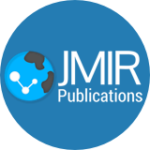
COVID-19 Patients Seeking Treatment: Modeling Predictive Age-dependent and Independent Symptoms and Comorbidities
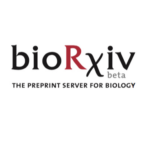
An Inflammatory Clock Predicts Multi-morbidity, Immunosenescence and Cardiovascular Aging in Humans
